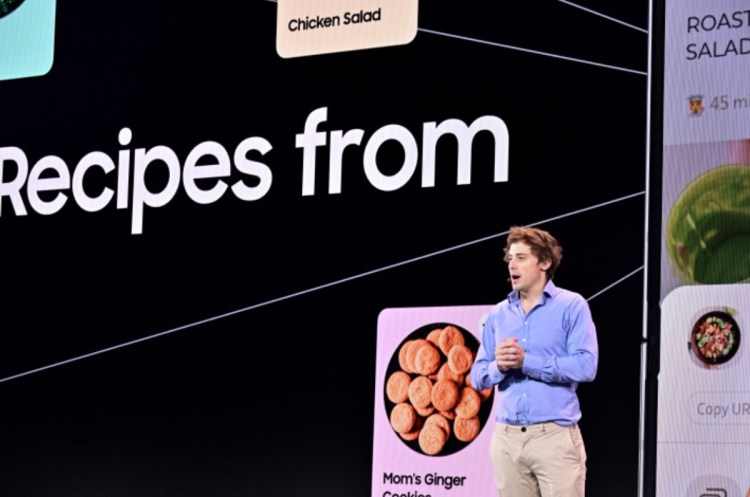In a recent event akin to CES, Samsung Electronics unveiled its latest innovations in smart home technology and artificial intelligence. With a focus on sustainability, security, and connectivity, Samsung is enhancing its SmartThings platform and integrating AI capability into its products.
Connecting Homes through SmartThings
Samsung’s vision for the connected home revolves around SmartThings and open innovation. To date, over 290 million SmartThings users have connected compatible products and services. With the integration of the Matter standard, SmartThings offers even more appliance connectivity features. This means that users can easily control and manage their smart devices from a single platform.
Expanding the Possibilities with Tizen and AI
Samsung’s operating system, Tizen, is expanding its reach to power more devices. This includes home appliances equipped with a 7-inch screen, which will offer an enhanced user experience powered by on-device AI. Through the Home AI Edge Hub, Samsung is making all devices in the home more intelligent. Appliances with lower computing power can now request AI services from devices with stronger computing resources, enabling a seamless and unified smart home experience.
Samsung Food, a comprehensive food experience across all connected devices, is also introduced at the event. Powered by Food AI and Vision AI technologies, Samsung Food provides services such as recipe-sharing, grocery purchases, and personalized recommendations. The integration of Samsung Health with Samsung Food will further enhance the user experience by offering diet management suggestions.
Empowering Developers with SmartThings and Tizen
To empower developers, Samsung focuses on platforms like Bixby, Samsung Knox, SmartThings, and Tizen. During the event, new features were unveiled to enhance user experiences and create safer, healthier, and more sustainable environments. The SmartThings Home API and SmartThings Context API provide developers with easier ways to create SmartThings-based apps and leverage AI and sensing technology.
To simplify the process of building smart homes, Samsung is embedding SmartThings Hub functionality into existing and new products, such as Samsung Sound Bars and Smart TVs. Additionally, Samsung showcased its collaboration with Aqara, demonstrating how their internet of things sensors work seamlessly with SmartThings to create intuitive and accessible smart homes.
Enhanced Security and Privacy
Addressing the importance of security and privacy in today’s hyperconnected world, Samsung introduced updates to its blockchain-based security vision, Knox Matrix. With features like Credential Sync and Trust Chain, Samsung enhances security measures across its devices. Notably, Samsung is expanding Knox Vault to more devices, including Neo QLED 8K TVs and select Galaxy A series smartphones. These advancements ensure greater convenience and choice for users while prioritizing their safety.
Further Advancements in Tizen and One UI
Samsung announced that Tizen is gaining support for the open-source semiconductor architecture RISC-V and the programming language RUST. This expansion opens up new possibilities for developers to create innovative applications and experiences on Tizen-powered devices.
Additionally, Samsung introduced the Remote Test Lab, allowing developers to test apps and experiences on Samsung TV devices in the cloud. The latest version of Samsung’s mobile user interface, One UI 6, provides users with a more customizable smartphone experience. The revamped Quick panel offers a refreshed and intuitive look, while settings are conveniently grouped together for easier access. Furthermore, One UI 6 introduces the exclusive typeface, One UI Sans, designed to improve readability on digital screens.
Digital Health Experiences and Research Collaborations
Not forgetting the importance of health and well-being, Samsung is expanding its offerings in the realm of digital health. Through SmartThings and Samsung Food, users can enjoy personalized sleep environments and better connections between their devices and services. The Samsung Privileged Health SDK enables developers and partners to create their own digital health solutions using the Samsung BioActive Sensor.
In addition to these advancements, Samsung announced collaborations with esteemed institutions such as Brigham & Women’s Hospital, MIT Media Lab, Tulane University, and Samsung Medical Center. These partnerships aim to advance clinical research in health technology, pushing the boundaries of what’s possible in the field of healthcare.










